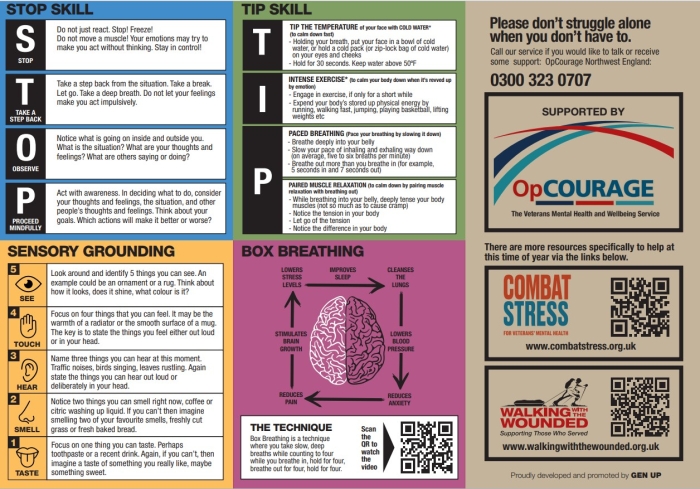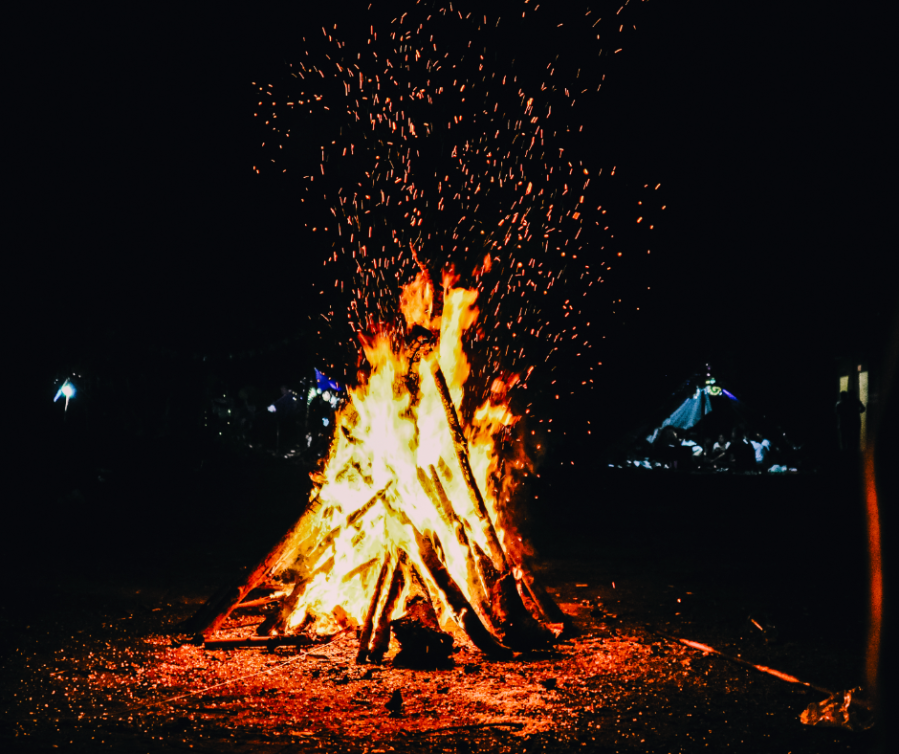Op Courage, the NHS veteran mental health and wellbeing service, is offering some top tips to help people on Bonfire Night, which we know can be triggering for veterans or those in active service, particularly if they suffer with Post Traumatic Stress Disorder (PTSD).
Many people look forward to Bonfire Night every year but for veterans this can a really challenging time which may lead to feeling isolated and lonely.
Veterans are trained to identify potential threats in their environment so any sensory experience which the brain interprets as being unexpected, such as loud noises, impulsive flashes of light and the smell of bonfires and fireworks can trigger anxiety and exacerbate mental health problems. Some people may feel on edge and overwhelmed, others may be reminded of traumatic experiences during combat.
Here are some tips to help you cope:
Plan your day
When you know there will be fireworks, such as Bonfire Night or New Year’s Eve, being prepared can help. Start by planning your day and what you are going to do beforehand, whether this is staying at home or going out.
Know your triggers
The smells and sounds caused by fireworks can act as strong triggers for memories. You can reduce the impact of this by having sensory aids such as essential oils or music.
Noise cancelling headphones or ear defenders can help to reduce the shock of sudden or loud explosions. Also, if you have them, using blackout blinds can help to block out unexpected or intermittent flashes caused by fireworks.
Use coping skills
These can can help to effectively manage and reduce distressing and overwhelming sensations such as sensory grounding techniques.
- See - Look around and identify five things you can see.
- Touch – focus on four things that you can feel. It may be the warmth of a radiator or the smooth surface of a mug.
- Hear – name three things you can hear at this moment. Traffic noises, birds singing and state the things you can hear out loud or deliberately in your head.
- Smell – notice two things you can smell right now. If you can’t then imagine smelling two of your favourite smells.
- Taste – focus on one thing you can taste. Perhaps toothpaste or a recent dink. Again, if you can’t, then imagine a taste of something you like.
Ground yourself
If fireworks trigger memories it can feel like you are back at a distressing time, so it is important to remind yourself that you are safe. Look around you, notice where you are, what you can see, smell, feel, taste and what actually happening. For example, tell yourself:
- ‘I am at home, I am safe and I’m not back there’
- ‘I am wearing…… and I am not wearing my uniform or military fatigues ‘
Also use techniques like 5-4-3-2-1 sensory grounding.
Talk to others
It can be helpful to talk to and connect with friends and loved ones. This can be in person by asking family and/ or friends to be with you during Bonfire Night or arranging to call them on the day.
This is temporary
Tell yourself this will pass and it will.
Daniel Petho, Assistant Clinical Psychologist at LSCft and Reservist Lance Corporal in the Queen's Own Yeomanry, an Army Reserve Light Cavalry Reconnaissance Regiment said:
“Emotions can be hard to understand and the deep feeling we experience is raw and real in that moment to the point we can’t see beyond the present. When understanding your reaction to a deep negative emotions, triggered by a situation such as Bonfire Night fireworks, remember that emotions are normal and urges are natural reactions. They are temporary, you don’t have to do anything but ride out the emotion like a surfer on a wave, as with any other feeling it will pass on its own.
Great Britain may be an island, however that doesn’t mean your mental health should be.”
Need some support?
Please don't struggle alone when you don't have to.
You can call Op Courage North West on 0300 323 0707. Alternatively our MAPPA, Victims and Veterans Team provides a single point of contact for all clinical Armed Forces related queries. If you are a Veteran or a family member and want further information about services and supports within the Trust or about Armed Forces charities and services in your area please feel free to contact the team and we will do our best to help, you can find details on our dedicated webpage which gives services that can help you and your family.
There are more resources available to help at this time of year, you can contact Combat Stress or Walking with the Wounded.


